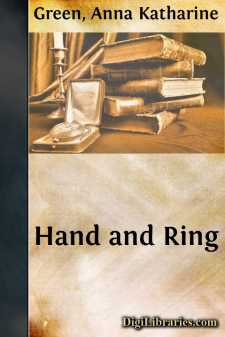Categories
- Antiques & Collectibles 13
- Architecture 36
- Art 48
- Bibles 22
- Biography & Autobiography 816
- Body, Mind & Spirit 145
- Business & Economics 28
- Children's Books 18
- Children's Fiction 14
- Computers 4
- Cooking 94
- Crafts & Hobbies 4
- Drama 346
- Education 58
- Family & Relationships 59
- Fiction 11831
- Foreign Language Study 3
- Games 19
- Gardening 17
- Health & Fitness 34
- History 1378
- House & Home 1
- Humor 147
- Juvenile Fiction 1873
- Juvenile Nonfiction 202
- Language Arts & Disciplines 89
- Law 16
- Literary Collections 686
- Literary Criticism 179
- Mathematics 13
- Medical 41
- Music 40
- Nature 179
- Non-Classifiable 1768
- Performing Arts 7
- Periodicals 1453
- Philosophy 66
- Photography 2
- Poetry 897
- Political Science 203
- Psychology 45
- Reference 154
- Religion 516
- Science 126
- Self-Help 86
- Social Science 82
- Sports & Recreation 34
- Study Aids 3
- Technology & Engineering 59
- Transportation 23
- Travel 463
- True Crime 29
Our website is made possible by displaying online advertisements to our visitors.
Please consider supporting us by disabling your ad blocker.
Dark Hollow
Categories:
Description:
Excerpt
A high and narrow gate of carefully joined boards, standing ajar in a fence of the same construction! What is there in this to rouse a whole neighbourhood and collect before it a group of eager, anxious, hesitating people?
I will tell you.
This fence is no ordinary fence, and this gate no ordinary gate; nor is the fact of the latter standing a trifle open, one to be lightly regarded or taken an inconsiderate advantage of. For this is Judge Ostrander's place, and any one who knows Shelby or the gossip of its suburbs, knows that this house of his has not opened its doors to any outsider, man or woman, for over a dozen years; nor have his gates—in saying which, I include the great one in front—been seen in all that time to gape at any one's instance or to stand unclosed to public intrusion, no, not for a moment. The seclusion sought was absolute. The men and women who passed and repassed this corner many times a day were as ignorant as the townspeople in general of what lay behind the grey, monotonous exterior of the weather-beaten boards they so frequently brushed against. The house was there, of course,—they all knew the house, or did once—but there were rumours (no one ever knew how they originated) of another fence, a second barrier, standing a few feet inside the first and similar to it in all respects, even to the gates which corresponded exactly with these outer and visible ones and probably were just as fully provided with bolts and bars.
To be sure, these were reports rather than acknowledged facts, but the possibility of their truth roused endless wonder and gave to the eccentricities of this well-known man a mysterious significance which lost little or nothing in the slow passage of years.
And now! in the freshness of this summer morning, without warning or any seeming reason for the change, the strict habit of years has been broken into and this gate of gates is not only standing unlocked before their eyes, but a woman—a stranger to the town as her very act shows—has been seen to enter there!—to enter, but not come out; which means that she must still be inside, and possibly in the very presence of the judge.
Where is Bela? Why does he allow his errands—But it was Bela, or so they have been told, who left this gate ajar … he, the awe and terror of the town, the enormous, redoubtable, close-mouthed negro, trusted as man is seldom trusted, and faithful to his trust, yes, up to this very hour, as all must acknowledge, in spite of every temptation (and they had been many and alluring) to disclose the secret of this home of which he was not the least interesting factor. What has made him thus suddenly careless, he who has never been careless before? Money? A bribe from the woman who had entered there?
Impossible to believe, his virtue has always been so impeccable, his devotion to his strange and dominating master so sturdy and so seemingly unaffected by time and chance!
Yet, what else was there to believe? There stood the gate with the pebble holding it away from the post; and here stood half the neighbourhood, staring at that pebble and at the all but invisible crack it made where an opening had never been seen before, in a fascination which had for its motif, not so much the knowledge that these forbidden precincts had been invaded by a stranger, as that they were open to any intruding foot—that they, themselves, if they had courage enough, might go in, just as this woman had gone in, and see—why, what she is seeing now—the unknown, unguessed reason for all these mysteries;—the hidden treasure or the hidden sorrow which would explain why he, their first citizen, the respected, even revered judge of their highest court, should make use of such precautions and show such unvarying determination to bar out all comers from the place he called his home....












